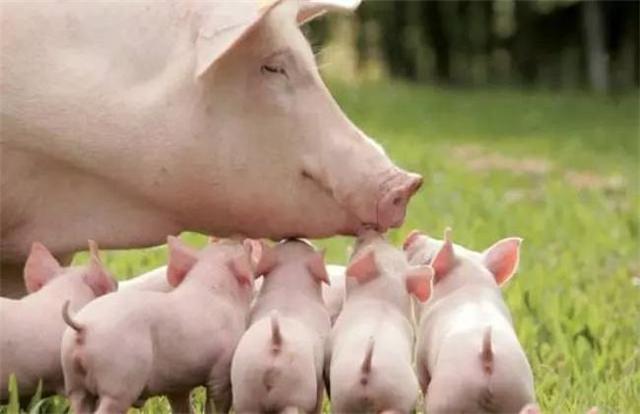Zheng Cheng, Si-Tong Zhou, Xiao-Hong Zhang, Qin Fu, Yue Yang, Wen-Bo Ji, Hong-Gui Liu
 In pig production,
the management of piglets by batch lactation due to the increase in litter
sizes of sows may result in intermittent early neonatal maternal separation
(NMS). We speculated that NMS may affect the piglets
cognitive growth performance and health. To determine the extent
of the effect, 12 litters of crossbred piglets (Large White × Duroc × Min-pig)
were used in this trial. Piglets in the control (Con) group (n = 6)
were given a standard feeding method during lactation. Piglets in the
experimental group (n = 6) were subjected to the NMS model, in which sows were
led out of the enclosure with food every day (8:00–11:00 and 13:00–16:00)
starting from postnatal day (PND) 7. During the
separation, the piglets were supplemented with milk. All experimental piglets
were weaned on PND 35. The piglets were observed for aggression, play, mutual
sniffing, and exploratory behavior on PNDs 7, 8, 21, 22, 34, 35, 38, 39, 51,
52, 64, and 65. Physiological indicators, namely serum adrenaline, cortisol,
interleukin (IL)-1β, IL-4, IL-6, and tumor necrosis factor (TNF)-α were
measured on PNDs 35, 38, and 65, while piglet growth performance was evaluated
during suckling and 1 month after weaning. The results showed that aggressive
behavior in the MS group was significantly higher than that in the Con group (P
< 0.05). Playful and mutual sniffing behaviors in the MS group were significantly
lower than those in the Con group except for PNDs 38 and 39 (P < 0.05). Active exploratory behavior in the MS group was
significantly higher than that in the Con group on PNDs 7 and 8, and PNDs 21
and 22 (P < 0.05). The frequency of belly-nosing behavior was
significantly higher in the MS group than that in the Con group except for PNDs
64 and 65 (P < 0.05). Compared with the Con group, epinephrine, IL-1β, IL-6,
and TNF-α concentrations on PNDs 35, 38, and 65 were significantly increased in
the MS group (P < 0.01), while IL-4 concentration was significantly
decreased (PND 35: P < 0.05; PNDs 38 and 65: P < 0.01). Compared with the
Con group, the piglet diarrhea rate in the MS group during suckling was
significantly increased (P < 0.01), the weaning weight was significantly
decreased (P < 0.05), and it had no significant effect on the body weight at
the end of the trial (P > 0.05). In conclusion, the early intermittent NMS
created stress and affected the growth performance of piglets during suckling.
However, the growth rate was improved by compensatory measures during late
weaning.
In pig production,
the management of piglets by batch lactation due to the increase in litter
sizes of sows may result in intermittent early neonatal maternal separation
(NMS). We speculated that NMS may affect the piglets
cognitive growth performance and health. To determine the extent
of the effect, 12 litters of crossbred piglets (Large White × Duroc × Min-pig)
were used in this trial. Piglets in the control (Con) group (n = 6)
were given a standard feeding method during lactation. Piglets in the
experimental group (n = 6) were subjected to the NMS model, in which sows were
led out of the enclosure with food every day (8:00–11:00 and 13:00–16:00)
starting from postnatal day (PND) 7. During the
separation, the piglets were supplemented with milk. All experimental piglets
were weaned on PND 35. The piglets were observed for aggression, play, mutual
sniffing, and exploratory behavior on PNDs 7, 8, 21, 22, 34, 35, 38, 39, 51,
52, 64, and 65. Physiological indicators, namely serum adrenaline, cortisol,
interleukin (IL)-1β, IL-4, IL-6, and tumor necrosis factor (TNF)-α were
measured on PNDs 35, 38, and 65, while piglet growth performance was evaluated
during suckling and 1 month after weaning. The results showed that aggressive
behavior in the MS group was significantly higher than that in the Con group (P
< 0.05). Playful and mutual sniffing behaviors in the MS group were significantly
lower than those in the Con group except for PNDs 38 and 39 (P < 0.05). Active exploratory behavior in the MS group was
significantly higher than that in the Con group on PNDs 7 and 8, and PNDs 21
and 22 (P < 0.05). The frequency of belly-nosing behavior was
significantly higher in the MS group than that in the Con group except for PNDs
64 and 65 (P < 0.05). Compared with the Con group, epinephrine, IL-1β, IL-6,
and TNF-α concentrations on PNDs 35, 38, and 65 were significantly increased in
the MS group (P < 0.01), while IL-4 concentration was significantly
decreased (PND 35: P < 0.05; PNDs 38 and 65: P < 0.01). Compared with the
Con group, the piglet diarrhea rate in the MS group during suckling was
significantly increased (P < 0.01), the weaning weight was significantly
decreased (P < 0.05), and it had no significant effect on the body weight at
the end of the trial (P > 0.05). In conclusion, the early intermittent NMS
created stress and affected the growth performance of piglets during suckling.
However, the growth rate was improved by compensatory measures during late
weaning.
2023, JAS, 101: skad122
https://doi.org/10.1093/jas/skad122
Registration hotline: 021-57634675
fax: 021-57632800
Copy right : 上海亘泰实业集团
Collaboration & Sponsorship: 021-57634938 57631012
ASASHotline:021-67868428
Site Map | CNZZStatistics
address:Shanghai songjiang jiuting town nine new highway 90 lane 3 nine new commercial building 15 floor

WeChat ID:asaschina
The pig nutrition international BBS CSIS